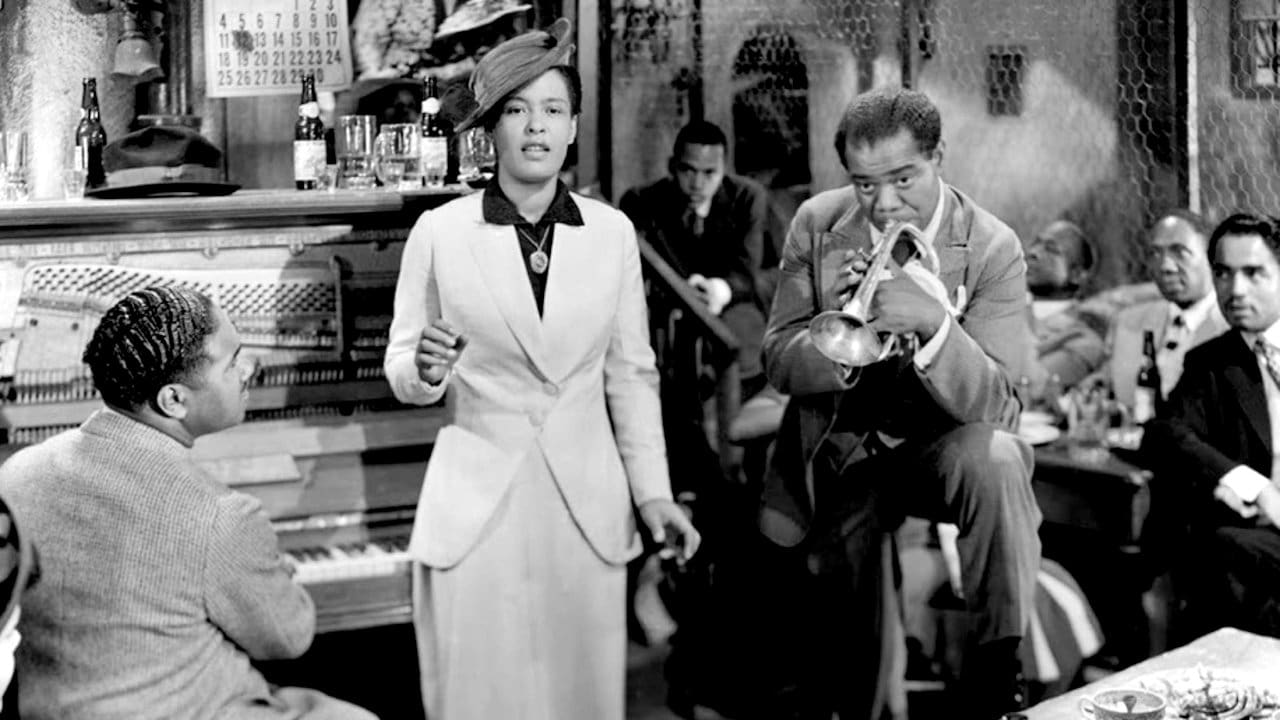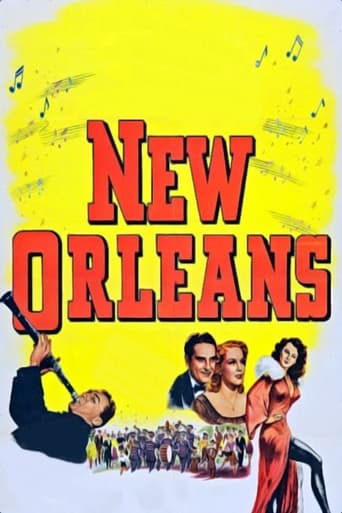



I like the storyline of this show,it attract me so much
View MoreWhat makes it different from others?
Too many fans seem to be blown away
Blending excellent reporting and strong storytelling, this is a disturbing film truly stranger than fiction
View MoreSome inconsequential dialogue and an overly dramatic story sandwiched between some entertaining jazz performances. Actually, the story is manufactured only to bring jazz to the big screen.And the music is the real reason to watch this film. It includes some really nice arrangements and solos, especially by Louis Armstrong. Billie Holliday also appears.There are also some interesting cameos, e.g. Shelly Winters. But the music is the real star. It feels quaint now to consider that this film practically apologizes for bringing jazz to society's elites. It uses classical music as a bridge to suggest that jazz might be worth appreciating.
View More"New Orleans" started out as an Orson Welles project at RKO -- a Louis Armstrong biopic with Armstrong playing himself -- and it morphed through several different incarnations (including a version by writer Valentine Davies that ultimately got filmed as "Syncopation" in 1942) before ending up with producer Jules Levey as the film we have. There's certainly a sense of might-have-been about this movie that was only accentuated in the early 1980's when an independent jazz reissue label called Legends released the surviving pre-recordings made by Louis Armstrong and Billie Holiday in October 1946 for use in the film -- including a treasure trove of music that hadn't made it anywhere near the final cut -- and the idea of basing a film about the history of jazz around a set of boring white characters and reducing the African-Americans to extras in their own story is all too familiar in Hollywood's treatment of just about any story involving African-based politics or culture.Now for the good news: within the horrible limits of the concept, the script is relatively well constructed, and Arthur Lubin's direction shows some visual imagination -- notably in the opening tracking shot through the streets of back-lot "New Orleans" before the camera enters Arturo de Cordova's cabaret/casino and discovers Louis Armstrong and his band playing "West End Blues" (inexplicably renamed "Name-Your-Poison Blues" in the film). In her autobiography "Lady Sings the Blues" Billie Holiday vividly registered her disgust at being cast as a maid, and in the scenes with Dorothy Patrick she's visibly stiff, barely able to get the servile dialogue out of her mouth -- but when she shows up at the cabaret set and gets to sing with Armstrong's band she visibly loosens up and becomes a relaxed and quite effective screen presence. My partner noted the similarities between "New Orleans" and the 1936 MGM film "San Francisco" -- both are about gamblers who own night clubs and opera singers who climb down from their pedestals to perform popular music, and the (real) closure of New Orleans' Storyville red-light district in 1917 fulfills the same climactic story function as the 1906 earthquake and fire did in "San Francisco."The first time I saw any part of "New Orleans" was at a screening of jazz movies in 1970, at which the host presented three numbers from the film ("Do You Know What It Means to Miss New Orleans?," "Where the Blues Were Born in New Orleans" and "Farewell to Storyville") that had been blown up from 8 mm sound prints released for home sales in France. The host said that the rest of the film had been lost, so it was quite surprising to me when I got to see the complete version twice in 1973 on an independent local TV station in the San Francisco Bay Area. Then I didn't see the film again until Kino released it on DVD, and having got over my disappointment at what it could have been, this time I could appreciate it for what it is: a flawed movie with an almost unbearably pretentious ending but still a quite entertaining film as well as a chance to see Armstrong and Holiday at the peak of their powers. (Woody Herman is hardly showcased to good effect even though he was leading perhaps the best band of his career, the "First Herd," at the time.) And I'm surprised the other commentator mentioning the greatest jazz movies left out my all-time favorite, Clint Eastwood's "Bird."
View MoreI just saw this in January, 2005 so this is a different view. It's difficult to know how professional movie people wouldn't know this is a terribly acted movie. DeCordova reprises his previously cardboard acting although he has something, but it doesn't come out. But the music of Armstrong, Holliday, and Herman etc. is magnificent. It surely is worth the time just to revel in the 1947 jazz. Bad acting doesn't destroy the movie. Wonder what happened to all those actors. It must have been the directing for all to be so bland. I think the attempt is to make this an epic picture showing the intrusion of jazz into classical music. The voice sync with the singer is also poor enough to be disturbing to the viewer. Dorothy Patrick is lovely but apparently not a singer. It's fun to see many old character actors that I knew by looks but couldn't remember their names. I'm sorry DeCordova didn't work out because I liked him in "Frenchman's Creek."
View MoreI was just a kid when I saw this at a midnight movie in Columbia, Missouri. Being a jazz fan I couldn't wait to see my jazz heroes. I'd like to say it was a good movie, but it was a bomb. . The story was corny. What little music there was I found to be excellent. Not only Satchmo, but there was Billie Holiday who played a maid (them's were the times). I have never seen this film on TV. Hollywood could have done a better job on this one. Still - it's worth the few moments of good New Orleans jazz.
View More